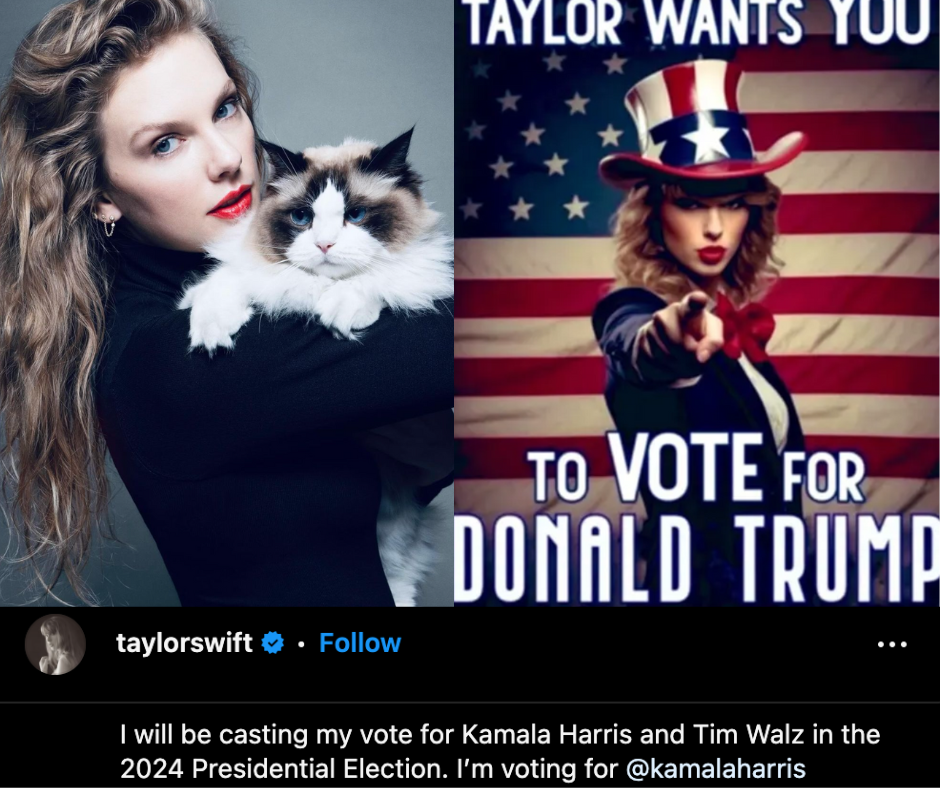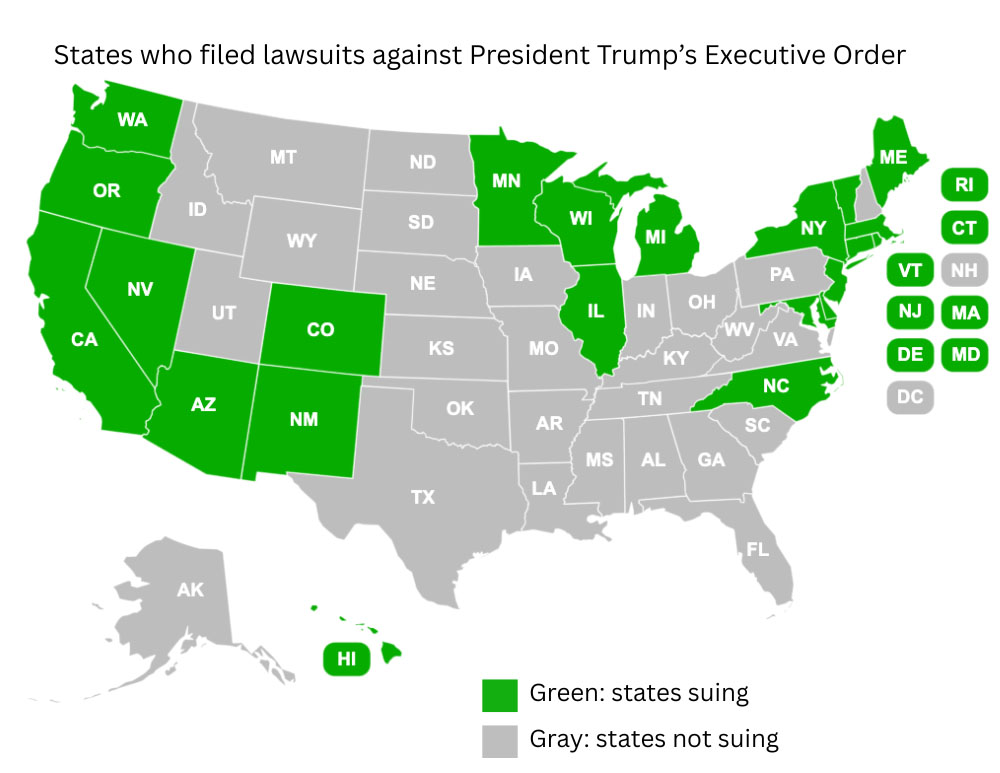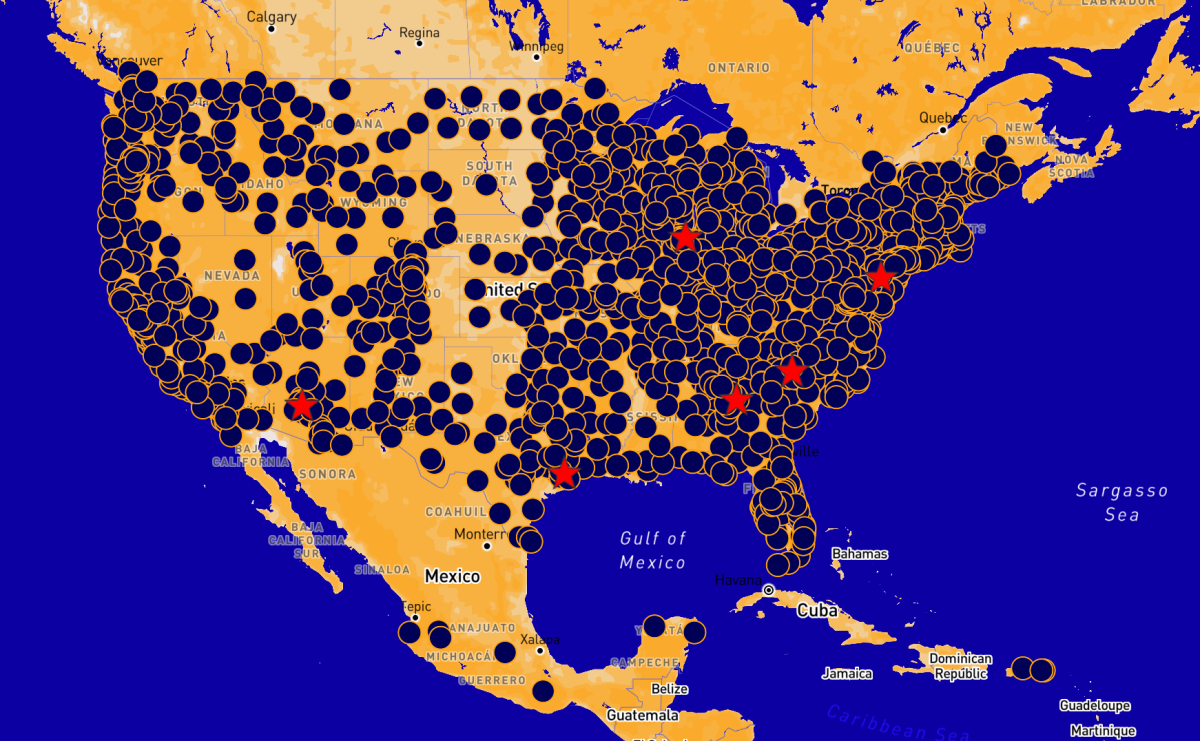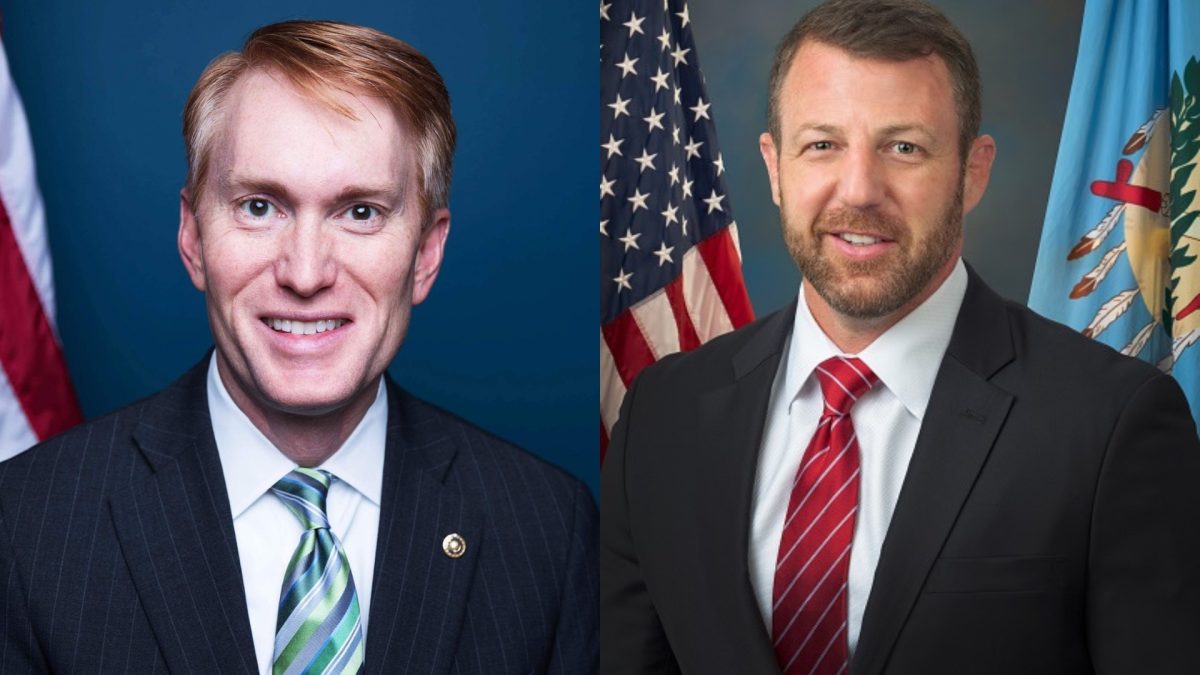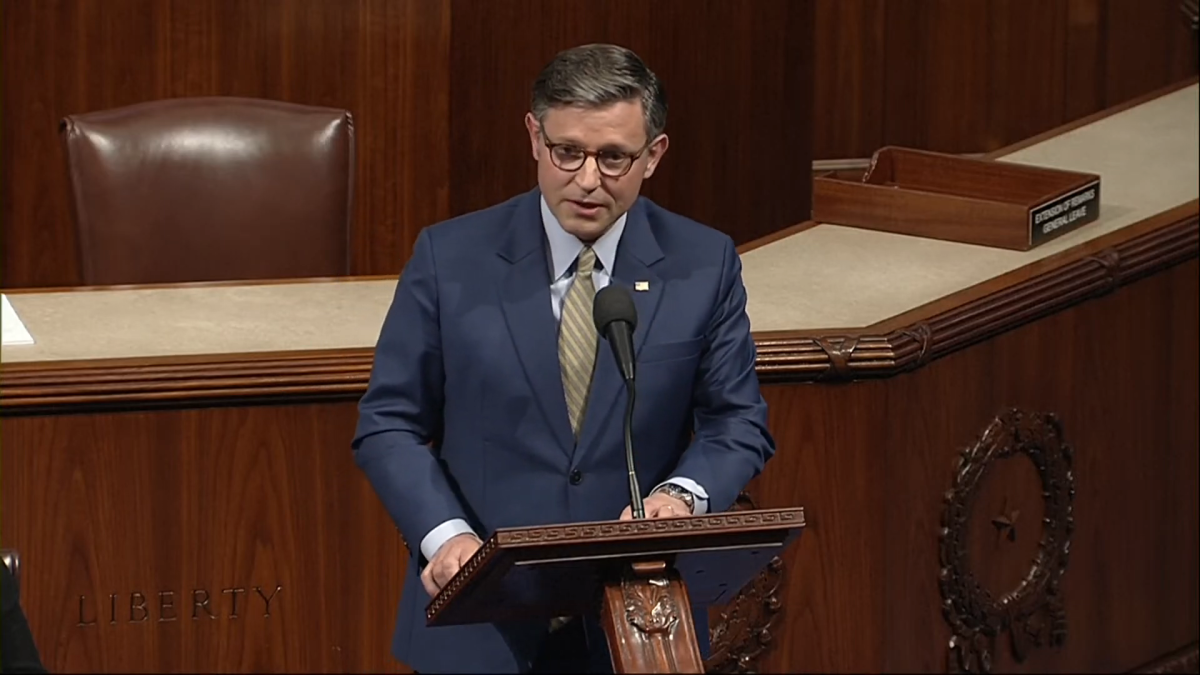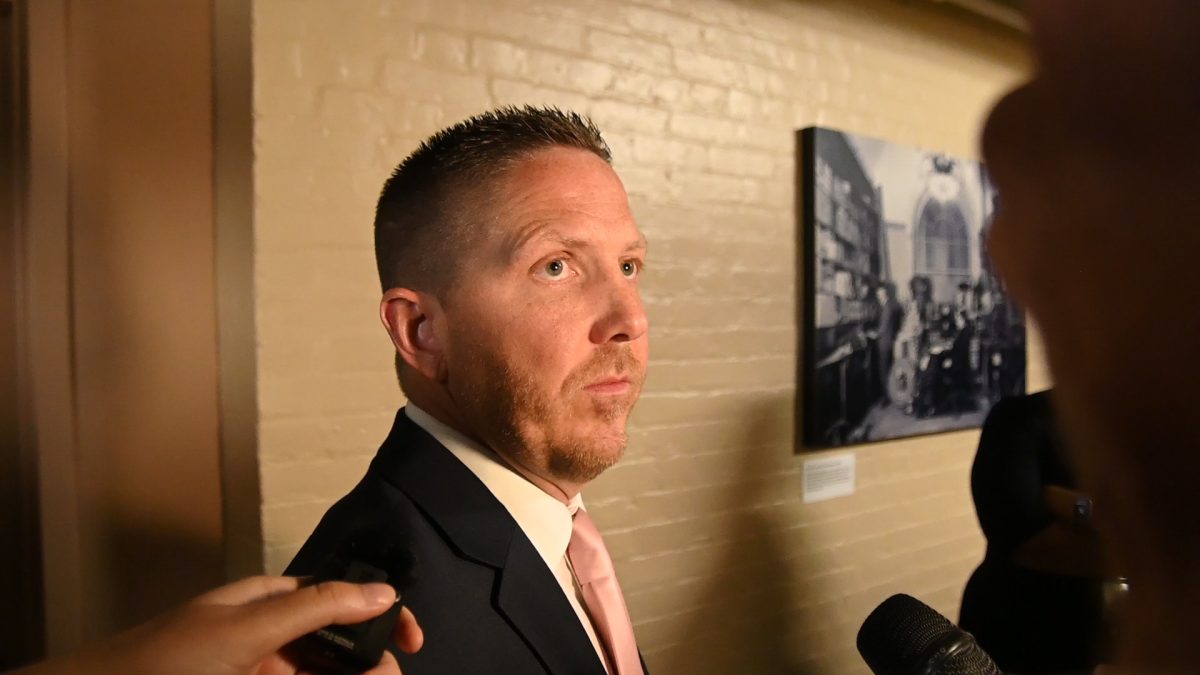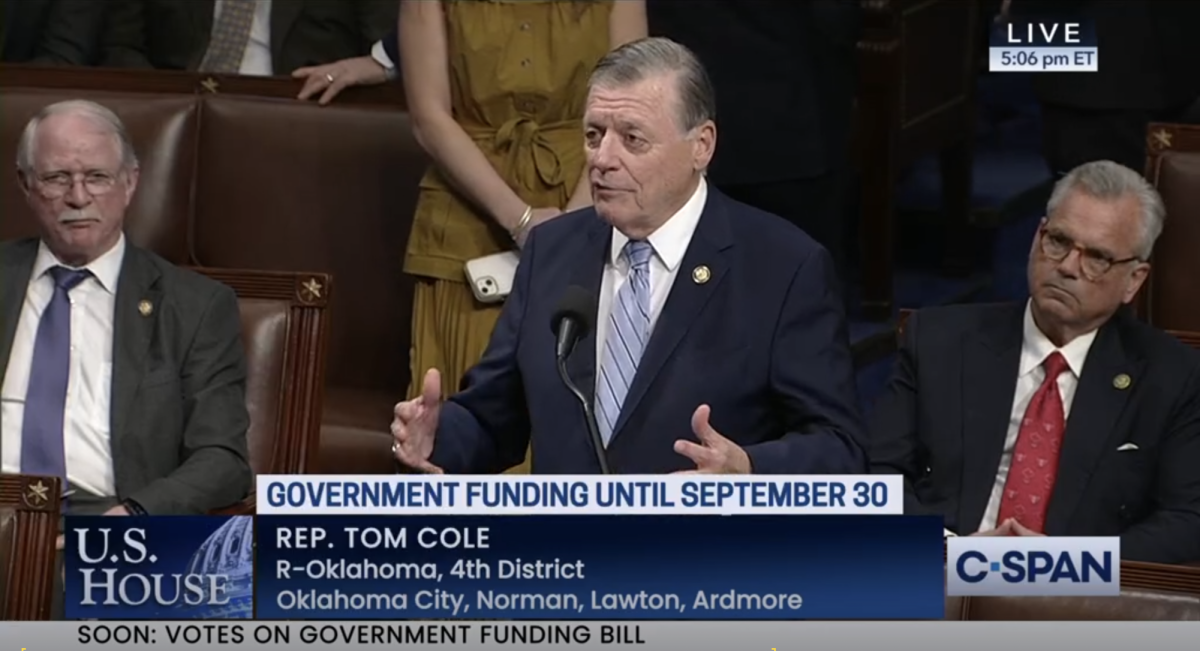Generation Z is expected to be one of the most influential voting blocs in the 2024 presidential campaign, and the Trump-Vance campaign has employed a variety of strategies to court their vote.
When the race for the White House was between President Joe Biden and former President Donald Trump, some Gen Z voters considered not voting. Now that the race has a new shape, with the nomination of Vice President Kamala Harris, some who considered not voting are re-evaluating their past stance and becoming engaged.
According to a recent NBC poll, 50% of the 41 million Gen Z voters would vote for Harris, 34% would vote for Trump, 6% would vote for someone else and 10% say they won’t vote.
The Harris-Walz campaign has been courting Gen Z through memes and slang. Meanwhile, as Trump returned to the campaign trail Tuesday after a second attempted assassination his campaign has been focusing on speaking to Gen Z through low-cost means such as podcasts, the use of Artificial Intelligence and conservative influencers.
Artificial Intelligence
In mid-August, Trump posted an AI-generated image of Taylor Swift as Uncle Sam. The post said “Taylor Swift wants you to vote for Donald Trump,” implying she had endorsed him. She had not.
Following the Trump-Harris debate on September 10, Swift posted an endorsement of Harris-Walz to her Instagram.
“Recently I was made aware that an AI of ‘me’ falsely endorsing Donald Trump’s presidential run was posted to his site,” Swift wrote on Instagram. “It brought me to the conclusion that I need to be very transparent about my actual plans for this election as a voter. The simplest way to combat misinformation is with the truth.”
“I will be casting my vote for Kamala Harris and Tim Walz in the 2024 Presidential election.”
Theresa Payton, White House Chief Information Officer from 2006 to 2008, said last week that celebrities like Swift can easily influence their audience. Swift herself has a top-five social media following across all platforms with over 550 million followers.
“The Gen Z demographic is highly engaged online and tends to trust the public figures they follow. Celebrities can sway not just political opinions but voter turnout, as we saw when Swift endorsed candidates in previous elections, leading to a surge in voter registrations,” Payton said.
After Swift’s endorsement of Harris over 337,000 people visited a link to vote.gov that Swift posted on Instagram, according to NBC. Vote.gov helps people register to vote in their state and provides voting information.
According to Payton, due to their influence celebrities are targets for disinformation campaigns. Because the internet thrives on confirmation bias, fans who see manipulated images may believe them, she said.
Trump also posted AI-generated images of women in “Swifties for Trump shirts.” There is not a “Swifties for Trump” organization, although some of her fans do support him. However, there is a Swifties for Kamala organization. MSNBC reported Swifties for Kamala hosted a fundraising call with around 34,000 participants. The call raised $142,000.
While the 2024 Presidential Election is one of the first to see AI come into play, AI experts believe it is likely to continue to play a role in future elections through targeted messaging.
Jeong-Nam Kim, a strategic communications professor at the University of Oklahoma, said the use of AI could allow campaigns to get their message out at a lower cost and with less staff.
According to David Ebert, Director of the Data Institute for Societal Challenges, the use of large language models makes it easy to create a template that can be customized based on voter profiles. By customizing the message, campaigns can appeal directly to voters. Through the use of databases, campaigns can personalize their messaging to target specific recipients.
Kim said by flooding the market with messages, campaigns can use the mere-exposure effect to sway swing voters.
The mere-exposure effect is a psychological phenomenon where people favor what is familiar to them. Through an abundance of messages, campaigns can become familiar to voters and influence them toward their policies and candidates.
By using AI, campaigns can create an abundance of content within seconds. Kim said one goal is to flood the marketplace of ideas with messaging and take advantage of the mere-exposure effect.
According to Payton, the use of AI will undoubtedly play a role in future elections.
“Campaigns will use AI to target voters more efficiently, predict voting trends, and optimize outreach,” Payton said.
Although AI could make campaigns more efficiently, it can also be used by bad actors to create disinformation campaigns, according to Payton.
With deep fakes, manipulated news stories and cloned voices for fabricating narratives, people may struggle to discern what is real. This can create a polarized electorate, she said.
Podcasts
Republican presidential nominee Donald Trump has been making appearances on podcasts and live streams on “X.”
In August, Trump joined Elon Musk in an “X” space. Their conversation lasted roughly two hours and was described as glitchy by the Associated Press. During the chat, the two discussed the assassination attempt on Trump among a wide range of topics.
Trump was also on “This Past Weekend,” a podcast hosted by Theo Von.
During the podcast, Trump and Von discussed an array of topics, including the pharmaceutical industry and the healthcare woes Americans face.
Trump also joined Lex Friedman on his podcast. On Friedman’s podcast, Trump discussed his recent statement of support for legalized cannabis, his upcoming debate with Democratic presidential nominee Kamala Harris and much more.
Trump is one of the first mainstream politicians to go on podcasts to discuss policy positions. It may be resonating with some young voters.
“I think what Trump’s job has got to be is to go on to all of these podcasts and try to get the message out,” Anthony Diulio, Chairman of the University of Oklahoma College Republicans, said.
Influencers
At the 2024 Republican National Convention in Milwaukee, around 75 conservative influencers were invited to make content and showcase the convention to their audiences, as AXIOS reported. Influencers were given thirty minutes a day to make content on the floor.
A reason for having influencers at the convention was to reach young voters. The Milwaukee Journal Sentinel reported that Youth Advisory Council co-chairs, Brilyn Hollyhand and CJ Pearson, led the initiative to invite influencers.
“Inviting influencers over to the RNC, I think it’s very important to make inroads. I think because you really need to motivate the young vote and no one knows how,” Diulio said.
Kevin Eagleson is reporting from Gaylord News’ Washington bureau this fall as part of an OU Daily scholarship.
Gaylord News is a reporting project of the University of Oklahoma Gaylord College of Journalism and Mass Communication. For more stories by Gaylord News go to GaylordNews.net

